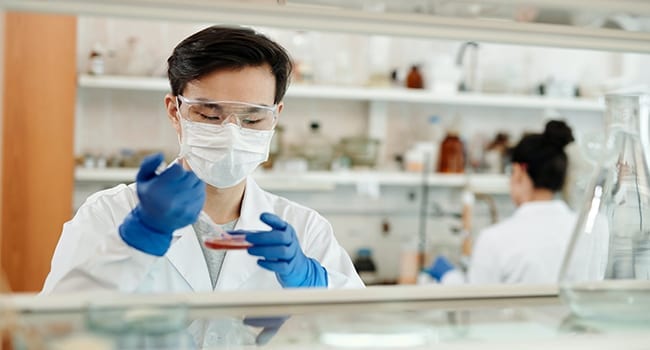Alberta COVID-19 researchers are getting a boost thanks to a unique system to save and store blood and other samples from COVID-19 patients.
The Alberta Precision Laboratories (APL) COVID-19 Biorepository has just been officially announced to ensure researchers have the material they need to create improved diagnostic tools, treatments and even potentially a vaccine against SARS-CoV-2, the virus that has sickened nearly six million people around the world.
“One common denominator among all basic and clinical research studies is they need access to samples from COVID-positive patients, and also from COVID-negative patients as controls,” said Michael Mengel, chair of laboratory medicine and pathology at the University of Alberta and North Sector medical director for APL.
In a classic biorepository, researchers design their studies in advance and obtain what is called “prospective consent” to take extra samples such as blood, tissue and stools from patients.
In this case, samples are taken from patients during the normal course of diagnosis and treatment for COVID-19. Once medically needed tests are complete, the excess – which is usually just thrown away – is divided into tiny portions called aliquots and preserved for future research by freezing to -80C.
“We were inundated with many requests to give samples to dozens of researchers and we felt we needed to put structure to the madness,” said Mengel. “This is a very creative way to secure material for future research.”
The biorepository is a joint venture between APL, the U of A, the University of Calgary and Alberta Health Services. Funds from the Calgary Health Trust, University Hospital Foundation, Alberta Cancer Foundation, Stollery Children’s Hospital Foundation, Alberta Children’s Hospital Foundation and Royal Alexandra Hospital Foundation were used to hire staff and purchase freezers.
“They all contributed funds because all of their researchers will access this across the province,” Mengel said.
“This is a true pan-provincial, pan-university, pan-health-care system, pan-foundation effort, and to pull something off at that scale in such a short time is really unique,” Mengel said.
A dashboard of the aliquots held in Edmonton and Calgary allows researchers to request samples tailored to their study needs. For most research, anonymized samples will suffice, so the privacy of patients is protected. For those who need more information about the patients, “retrospective consent” will be sought.
“It really depends on the research question whether, when and how you require consent,” Mengel said.
Mengel said several Alberta researchers funded by recent Canadian Institutes of Health Research COVID-19 rapid response grants have already received samples from the biorepository.
“They are finding better diagnostics, faster diagnostics, new treatment options,” Mengel said.
“We provide the real-world material to test whether their research hypotheses are valid and can be upheld in real patients.”
| Gillian Rutherford
This article was submitted by the University of Alberta’s online publication Folio, a Troy Media content provider partner.
The views, opinions and positions expressed by columnists and contributors are the author’s alone. They do not inherently or expressly reflect the views, opinions and/or positions of our publication.



